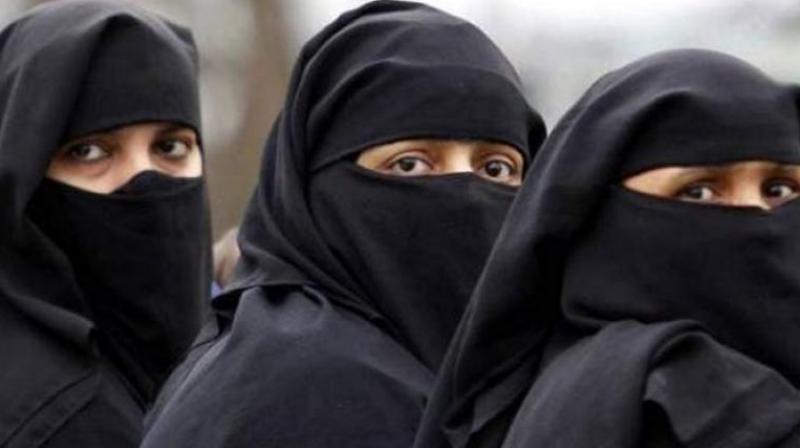Triple Talaq row: Hearing continues in SC today
The top court had also made it clear that it wants to adjudicate on the triple talaq issue as it is a matter involving human rights.

New Delhi: The Supreme Court on Thursday is likely to frame a series of issues from a legal perspective and clear aspects in the legislative domain on triple talaq and polygamy in the Muslim community.
The apex court had earlier in its last hearing clarified that it would not get into the common civil code issue.
The top court had also made it clear that it wants to adjudicate on the triple talaq issue as it is a matter involving a person's human rights.
The Supreme Court on February 14 termed 'triple talaq' as an issue of human rights, and said that it will not hear the petitions related to Uniform Civil Code along with it as it was a different matter altogether.
"It's a matter of human rights, so we would deal with it properly," the court said.
The apex court also said that it would pass an order and dispose off the petitions on May 11, regarding the validity of triple talaq case.
A bench of the apex court, headed by Chief Justice of India, Justice Jagdish Singh Khehar said so after hearing the plea filed by one Shayara Banu, who had moved the apex court challenging the validity of triple talaq.
Several women have filed a petition before the Supreme Court seeking the quashing of the triple talaq practice. The Central Government has also told the top court that it is against gender injustice and for equality between men and women under the Constitution.
One of the petitioner's Shayara 38, stirred a hornet's nest after she moved the Supreme Court to challenge the triple talaq under Muslim personal law, under which a man simply has to utter 'talaq' thrice to divorce his wife.
Shayara has also challenged in the apex court the concept of 'nikah-halal', under which a woman must consummate another marriage in order to go back to her first husband if she wants to. She also wants to outlaw polygamy within a Muslim marriage.
In December last year, the Allahabad High Court termed the Islamic practice of divorcing a woman by uttering the word "talaq" thrice as unconstitutional.
The court further observed that the triple talaq practice sanctioned under Muslim Personal Law that governs marriage, property and divorce violates the rights of Muslim women.
"Triple talaq is unconstitutional, it violates the rights of Muslim women," ruled the High Court, adding that no personal law board is above the Constitution.
However, the All India Muslim Personal Law Board has defended the practice, saying it is better to divorce a woman than kill her. The rights bestowed by religion can't be questioned in a court of law, it said.

